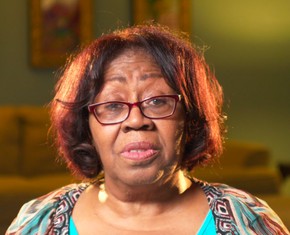The views expressed in our content reflect individual perspectives and do not represent the authoritative views of the Baha'i Faith.
It’s easy to see the world as a broken place, and ourselves as hopelessly separated from each other. The media and often our personal conversations focus on the many complex divisions among us.
How might we instead focus on the connections we can make, and the personal and societal benefits we will reap from forming closer associations with each other?
RELATED: How Community Service Created Lasting Friendships
In 2011, the United Nations declared July 30 the International Day of Friendship. That upcoming day offers an opportunity for organizations and individuals to promote friendship as a path to peace.
The U.N.’s website page about this special day says:
Our world faces many challenges, crises and forces of division — such as poverty, violence, and human rights abuses … that undermine peace, security, development and social harmony among the world’s peoples.
To confront those crises and challenges, their root causes must be addressed by promoting and defending a shared spirit of human solidarity that takes many forms — the simplest of which is friendship.
Through friendship … we can contribute to the fundamental shifts that are urgently needed to achieve lasting stability, weave a safety net that will protect us all, and generate passion for a better world where all are united for the greater good.

What do we get from our friendships? Perhaps we talk about or do things together that we enjoy. We share our happy news and celebrations. Our friends are there for us in our darkest moments, with listening ears and compassionate hearts. They offer assistance, advice if we ask for it, and the benefit of their own experiences. Clearly, friendship has multiple and mutual personal benefits.
The Baha’i teachings offer a comprehensive view of friendship that goes beyond our individual benefit, saying that the unity of the human race represents an essential part of God’s plan for us. Our individual actions, when they come from a true desire to connect hearts and build unity, have both immediate and far-reaching effects.
As a Baha’i, I have come to believe that few activities are more important in our collective life than the simple actions of friendship, which we can carry out with each person in our lives.
In fact, Abdu’l-Baha, the son of Baha’u’llah, the prophet and founder of the Baha’i Faith, stated outright that world peace begins on a personal level: “… peace must first be established among individuals, until it leadeth in the end to peace among nations.”
In his writings, Abdu’l-Baha also offered us an idea about how we might begin to create this peace: “… strive ye with all your might to create … genuine love, spiritual communion and durable bonds among individuals. This is your task.”
We all want “genuine love, spiritual communion and durable bonds.” Perhaps we have many friends, yet some of our friendships may remain at a superficial level. We befriend people because of proximity or shared interest, and when our circumstances change, the friendships may end. In my several moves, I have discovered which friendships were superficial, and which were based on a deeper connection. Often, I had spent many hours with someone, at work for example, and considered us friends, yet we did not keep in touch after I moved, as our association was based on shared experience and little else.
The missing component may be a spiritual connection of the heart. Abdu’l-Baha made a distinction between accidental associations and true friendship based on love:
But the love which sometimes exists between friends is not (true) love … As the breeze blows, the slender trees yield. If the wind is in the East the tree leans to the West, and if the wind turns to the West the tree leans to the East. This kind of love is originated by the accidental conditions of life. This is not love, it is merely acquaintanceship; it is subject to change. Today you will see two souls apparently in close friendship; tomorrow all this may be changed.
So how do we foster friendships based on a deeper connection? Perhaps we begin with an intention to demonstrate love. In a talk he gave in Paris, Abdu’l-Baha said “Let your heart burn with loving-kindness for all who may cross your path.”
How can we do that? The Baha’i writings encourage us to think of our friendships in terms of service, a sign of this effusive love: “Let them at all times concern themselves with doing a kindly thing for one of their fellows, offering to someone love, consideration, thoughtful help.”
To be a Baha’i means being friends with everyone, open to all, regardless of any differences. Abdu’l-Baha wrote:
Let them see no one as their enemy, or as wishing them ill, but think of all humankind as their friends; regarding the alien as an intimate, the stranger as a companion, staying free of prejudice, drawing no lines.
RELATED: Healing Heartbreak Through True Friendship
We may desire more diverse friendships, but find that most of our friends are similar to us. Perhaps we share the same ethnic group, educational level, socio-economic status, and political persuasion. But we can make an effort to widen our circle, knowing this is the best way forward for all of us. In a recent message, the National Spiritual Assembly of the Baha’is of the United States wrote:
The evils of racism, materialism, and moral decadence will be eradicated only by a love that is translated into action – such actions as deliberately going out of our way to befriend all, appreciating the indispensable contributions of all, and joining hands with all in the creation of a new world.
The effort to meet and make friends outside of our normal social circles may seem less difficult if we remember we are all souls before God, and we share with every human on the planet those things that most uniquely make us human. We all have souls. We feel the same emotions. We have families and loved ones we care about. We all desire meaning, peace, dignity. We love music and art that lifts our spirits. We love to laugh, and we all desire to make meaning from the circumstances of our lives and to give to others. When we elevate our conversations to what matters most, and carry out meaningful service to humanity together, we will find easy pathways to true friendship.
We will also do well to remember our agreement on all matters is not a prerequisite for friendship. This is important in a time of political polarization. I have a general policy not to discuss politics with friends or family, avoiding the dis-unifying and disheartening consequences which can cause us to pull back from each other, rather than come together. Instead, we can focus on what we agree on, and the spiritual principles at play, as Abdu’l-Baha recommended:
When you meet those whose opinions differ from your own, do not turn away your face from them. … Do not allow difference of opinion, or diversity of thought to separate you from your fellow-men, or to be the cause of dispute, hatred and strife in your hearts. Rather, search diligently for the truth and make all men your friends.
With all of this in mind, I invite you to consider making a personal plan to celebrate the International Day of Friendship on July 30. We can each take simple and joyful actions:
- Introduce yourself to a neighbor you haven’t met yet
- Invite some acquaintances you’d like to know to your home
- Think about your existing friends – what can you do to strengthen these bonds? How can you be of service to your friends?
- Help your friends meet new people by bringing them together. Happiness is often multiplied when people you love meet each other
- Initiate a service project with a group of friends. Your shared service experience will make your bond stronger
- Invite a friend to share prayer with you, in person or by phone
- Send a card to a long-lost friend, or call someone you haven’t heard from in a while. Tell them what you appreciate about them
- Gather a group to create art or music together while celebrating friendship
- Initiate a Zoom call to a group of friends: during the last year five of my friends met monthly to share roses (sources of happiness), thorns (challenges) and buds (things we were looking forward to). Our friendships deepened as we learned more about each other’s lives and supported each other’s growth.
Finally, we can spread the word by inspiring others to observe this day, bearing in mind that, while this might feel like a small thing to do, our efforts will be confirmed and multiplied. As the Baha’i teachings say, the desire for true friendship is contagious!
If you desire with all your heart, friendship with every race on earth, your thought, spiritual and positive, will spread; it will become the desire of others, growing stronger and stronger, until it reaches the minds of all men.
Make a new friend today, or reach out to an old friend – you’ll make at least two people happy.
















Comments
Sign in or create an account
Continue with Googleor